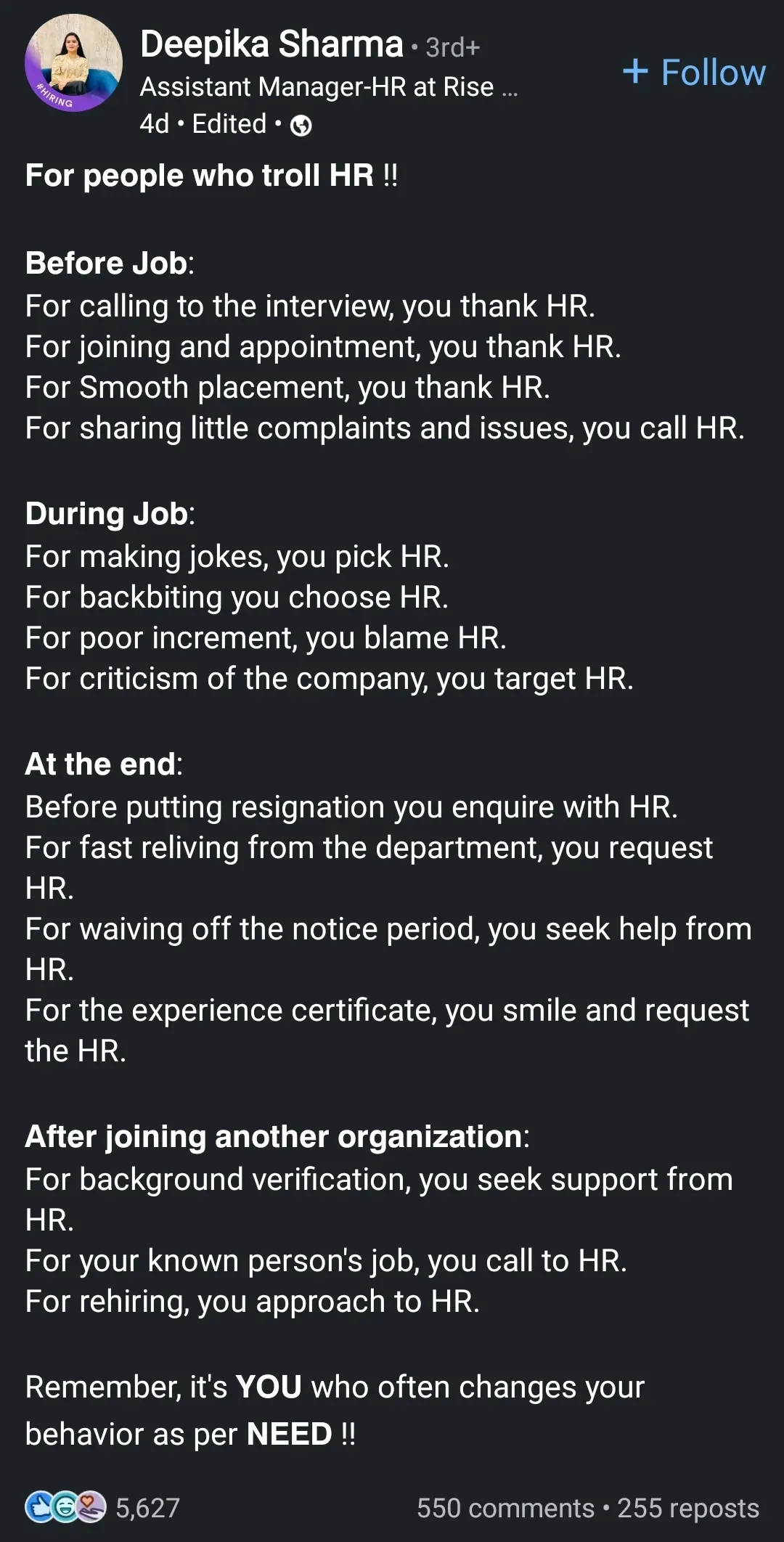this post was submitted on 09 Jul 2024
209 points (95.2% liked)
LinkedinLunatics
3549 readers
693 users here now
A place to post ridiculous posts from linkedIn.com
(Full transparency.. a mod for this sub happens to work there.. but that doesn't influence his moderation or laughter at a lot of posts.)
founded 1 year ago
MODERATORS
you are viewing a single comment's thread
view the rest of the comments
view the rest of the comments

Belgian here. The rules vary depending on the collective agreement the position falls under (hospitality workers' unions negotiate separately from construction workers' for instance).
Most people in most jobs are some variation of salaried (whether on a fixed or indeterminate duration contract) and the contract must be broken either upon natural termination (fixed contract or tryout period), with a predetermined amount of notice time, or due to an egregious fault (multiple warning notices, stealing from the employer, failing to pay the employee, etc.).
Contractors can be hired and fired willy-nilly, but they normally get paid enough for that not to be a concern. I'm not aware of "hourly" contracts in the way North-Americans usually mean them, AFAIK the number of weekly working hours must always be determined in advance. I just checked, in the hospitality industry there is obviously some regulated leeway for scheduling but the yearly average must be exactly 38 hours/week (hence why some Americans always complain that European waiters aren't kissing their boots every 5 seconds). Though there are many different collective agreements, each with enough different rules to keep the employment lawyers well fed.
"Odd jobs" are legal and not subject to those rules, but if you regularly employ someone for "odd jobs" then it is very likely that were they to challenge it in court, the judge would reclassify that as a salary position and rule according to that and even possibly fine the employer for unlawful employment. Generally speaking if someone can just walk away from a job with no repercussions in Belgium, I'd expect that it is either an illegal employment situation, some kind of odd/seasonal job, or a job where the employer just doesn't care enough to sue (if they were paying out the minimum wage, they certainly aren't going to get anything back by suing!).
Fellow belgian here.
While I agree with what you wrote here there are some other forms of employment too, which do not get the same protections: student jobs, interim jobs and I think flexijobs.
IIRC, not too long ago there was even quite a fuss about interim jobs being abused for long-term employment without worker protections.